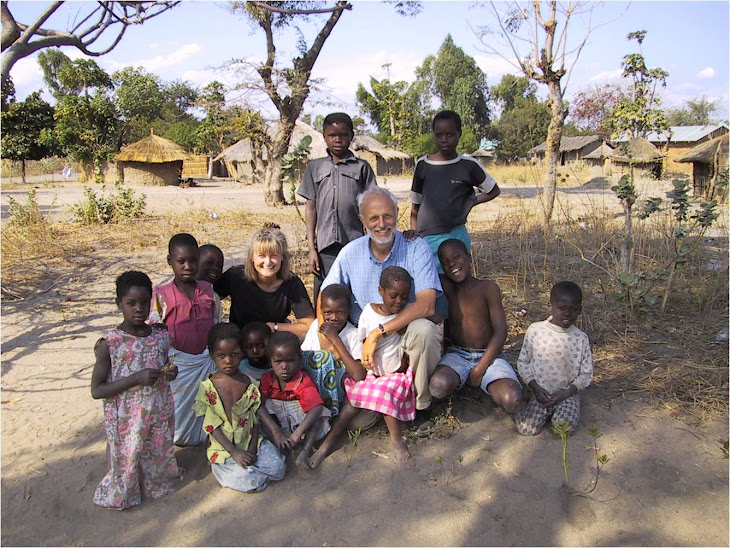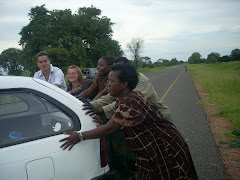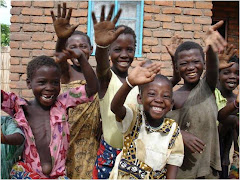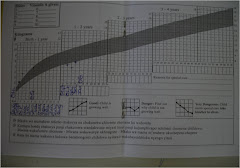A Day in the Life
No day goes as planned is my personal mantra out here and yesterday was no exception.
We had two objectives: to travel to the MUA Mission about one or two hours from here to see Father Brenden O’Shay who had housed medical students for us last year and revisit the hospital that has served as our training site. The other goal was to do this in the daylight. Traveling at night along narrow roads full of villagers either walking or riding bicycles can be nerve racking at best and downright dangerous on occasions.
It was Sunday and we had heavy rains during the night. We had made a commitment to attend the CCAP (Central Church of Africa-Presbyterian) which was scheduled for 9:30, the time we arrived. But the rains delayed the service for over an hour.
I rushed over the tarmac main road and along the 1 ½ miles of dirt path/road to our cottage, leaving Ruth and two students at the church to deliver some small gifts to a family who lived nearby. We were multitasking. This is always a mistake out here.
Returning to the road, I was stopped by three uniformed police. I was not allowed to enter the road. The President and his entourage would be passing by in a few minutes and the road must be cleared of traffic. A few minutes became 15 then 30, then 60 plus. Cars, trucks, businessmen, fisherman all were pulled off to the little side road. None were pleased. I did the doctor trick. I was scheduled to see a patient at the MUA hospital. Papani bwana (sorry sir). What if the patient dies? Papani bwana! Finally after one and a half hours, a convoy of 25 cars and a bus lights on and traveling at high speed passed by. We were later to learn he was on a crop inspection not stopping just observing as the convoy buzzed down the road.
At last we were on our way. We had rehabilitated our car. This is needed annually and we are used to it. The previously reported thirst problems for both oil and water (every one hour of travel) had been fixed. The engine had new pistons and rings before we arrived. We replaced the radiator and bought new tires. Since we arrived, it had been purring along.
One and a half hours towards the MUA mission in the middle of nowhere, traveling at 80 kilometers an hour, the engine just quit, as if someone had turned off the key. Wow! No roadside service here, not even our AARP towing assistance. By now it was 3:00 pm and would be pretty much pitch black by 6pm.
I looked at the engine. It had water and oil. The battery looked fine and I could find no loose wires. I let it cool down. Not only did it not start, but sounded different when the engine turned over. Recheck the engine! Ah! A loose cover at the end of the engine block easily removed and voila - the timing belt had broken. This car was not going to be repaired by the roadside.
Out here you call your friends. You depend upon them. Plus the great innovation in this part of the world, we discovered when first returning for these annual trips 10 years ago were functioning cell phones.
I called Mr. Sibale, the director of MCV. “Bwana, the car is buggered and we are stuck”. His response, “ I will get the mechanic and I am on my way”, no hesitation, no delay.
And now what do you do for two hours. By this time we have two college graduates, Ricardo from Chicago and Samantha from Anchorage both volunteer teachers, plus Peter our Malawian IT person for the Malawi Children’s Village. All are nonplussed by this and proceed to have Ricardo teach them the salsa using music from his ipod in the middle of the tarmac road which has not seen a car pass by for at least an hour.
Almost two hours later we see Sibale”s car in a distance and as it approaches, a tow bar is suspended and hanging out the front driver and rear passenger window. A “ site for sore eyes”. As we heaped on thanks for the rescue, he and his wife Faith could not count the number of times they have done this or been towed themselves. It turns out that every family with a car has a steel tow bar as standard auxiliary equipment. In fact we were close by. He had traveled for hours in the past to tow folks back to town.
So late in the afternoon, steel tow bar attached, flashing warning lights a blazing, and me at the steering wheel and watching for a slack tow bar, we limp back to home. It was uneventful except after dark and staring at the tow bar for well over an hour being illuminated by his flashing tail lights, I was glad I did not have any seizure tendency.
Home at last after dark about 7:30 pm. I told Ruth we were lucky. I had though this would have been an all night affair. But unknown to us, more was still to come.
I have mentioned in a previous note the worry about rain around here. We had rain the night before, not enough but a good start. At about 2 am Monday morning in what must have been an answer to the ablations of the villagers, the rain gods awoke, and the water that fell equaled that going over Victoria Falls on the great Zambezi River. Now thatched roofs are good, but they have their limitations. What is that dripping in my face? Up with a flashlight for now of course the power is out and there is water fairly straight down the house-lots of it. This included one of our beds that we had used to sort out papers and pictures. There was water on the portable printer (it still works). With the rain still coming, the only answer is to move from the dripping spots. Put towels over what was not moveable and wait until morning.
It was Biblical. We know that the first part of Genesis says the earth was created in seven days. I never believed it, nor did I believe that whole lakes could be created overnight, but it happened.
In the morning light, there were lakes everywhere and what used to be dry creek beds were raging rivers eroding their banks at every turn and creating new channels. Everyone with a thatched roof was wet. The villagers had the toughest time. Many of their walls are just mud dried bricks that work well if they are kept dry. Not this time, they melt away. When you talk to them they don’t talk about their nyumba (village hut), they say their maize gardens have enough water. Out here it is a mater of priorities. Houses can be repaired. A lost growing season, and there is famine the following year.
And so, one 24 hour period- a day in the life.
Monday, March 22, 2010
Subscribe to:
Post Comments (Atom)







No comments:
Post a Comment